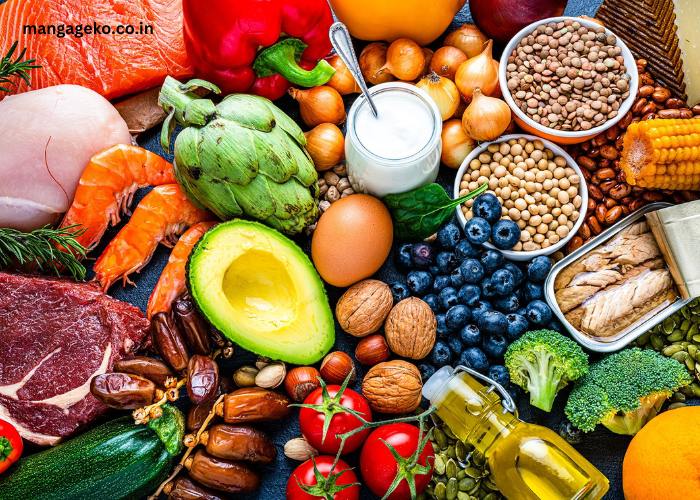As we look ahead to 2025, it’s clear that nutrition plays a pivotal role in achieving peak health. With an ever-growing focus on wellness, sustainability, and personalized diets, making informed and intentional food choices has become essential for optimal well-being. Whether you’re aiming to enhance your energy levels, manage your weight, or simply feel your best every day, the right nutrition can make all the difference.
In this guide, we’ll cover everything you need to know about nutrition for 2025, from essential nutrients to emerging trends in the health and wellness industry. Whether you’re a fitness enthusiast, someone looking to improve their overall health, or a busy professional with limited time, there are practical and effective nutrition tips that can be integrated into your lifestyle.
In 2025, the landscape of nutrition is evolving. With more advanced understanding of the relationship between food and health, personalized nutrition is becoming the norm, and people are more aware of the impact their eating habits have on both their body and the environment. In this new era, nutrition is not just about losing weight or fitting into a dress size—it’s about nourishing your body for long-term health, vitality, and longevity.
The key to achieving peak health in 2025 is adopting a balanced, nutrient-rich diet that suits your individual needs while also aligning with the trends of sustainability and eco-consciousness. It’s no longer about short-term fixes or extreme diets, but about creating lasting changes that will improve your life on all fronts.
Key Points:
- A well-balanced, nutrient-dense diet is essential for overall health.
- Personalized nutrition allows for tailored, effective health management.
- Sustainable eating habits play a significant role in improving both personal health and the environment.
What Are the Key Nutrients You Need for Peak Health in 2025?
In 2025, understanding the essential nutrients for your body is more important than ever. These include macronutrients (proteins, fats, carbohydrates) that provide energy and support bodily functions, as well as micronutrients (vitamins and minerals) that are needed in smaller amounts but are crucial for good health.
Macronutrients: Fueling Your Body for Optimal Performance
- Protein: Essential for muscle repair, immune function, and hormone production, protein continues to be a cornerstone of any healthy diet in 2025. Plant-based protein sources like lentils, quinoa, and tofu are increasingly popular, along with lean animal-based sources like chicken, turkey, and fish.
- Healthy Fats: Fats are important for energy, brain health, and cell repair. Healthy fats such as omega-3 fatty acids (found in salmon, chia seeds, and walnuts) help reduce inflammation and improve cardiovascular health.
- Carbohydrates: Carbs are the body’s primary energy source. In 2025, there is a shift toward complex carbohydrates such as whole grains, vegetables, and fruits. These foods provide fiber, stabilize blood sugar, and keep you feeling full longer.
Micronutrients: The Little Helpers for Big Results
Micronutrients are just as important for your health, even though you need them in smaller amounts. These include vitamins and minerals that support immune function, skin health, and bone strength. Key micronutrients include:
- Vitamin D: Supports immune health and bone density, typically found in fatty fish, fortified milk, and eggs.
- Magnesium: Essential for muscle and nerve function, found in leafy greens, nuts, and seeds.
- Iron: Critical for oxygen transport in the blood, found in red meat, beans, and leafy vegetables.
Comparison Table: Key Nutrients and Their Sources
| Nutrient | Food Sources |
|---|---|
| Protein | Tofu, quinoa, beans, chicken, fish |
| Healthy Fats | Avocados, olive oil, walnuts, salmon |
| Carbohydrates | Brown rice, oats, sweet potatoes |
| Vitamin D | Fatty fish, fortified milk, eggs |
| Magnesium | Spinach, almonds, pumpkin seeds |
How Can Personalized Nutrition Improve Your Health in 2025?
Personalized nutrition is the future of health. By understanding your unique genetic makeup, lifestyle, and health goals, you can create a customized diet that addresses your individual needs. Rather than following a one-size-fits-all approach, personalized nutrition allows you to fine-tune your diet for maximum results.
Why Does Personalized Nutrition Matter?
- Optimized Health: By customizing your diet based on your specific needs, you can address health concerns like digestive issues, allergies, or metabolic conditions. Personalized nutrition maximizes nutrient absorption and overall well-being.
- Enhanced Performance: For athletes or anyone looking to boost energy, a tailored nutrition plan can optimize performance and endurance.
- Prevention and Longevity: Personalized nutrition allows for early identification of potential health risks, enabling you to make dietary adjustments to prevent conditions like heart disease or diabetes.
The use of genetic testing, personalized health apps, and working with dietitians can help create a nutrition plan that works for you and supports your long-term health goals.
Reminder: Personalized nutrition is the key to optimizing your health based on your individual needs.
What Role Does Sustainable Eating Play in Health in 2025?
Sustainable eating is not just about eating more plant-based foods, but it’s also about making choices that contribute to the health of the planet. In 2025, people are increasingly aware of the environmental impact of food production, which has led to a rise in plant-based diets, local sourcing, and eco-friendly packaging. This shift not only benefits the environment but also supports personal health.
Key Aspects of Sustainable Eating
- Plant-Based Diets: Eating more plant-based foods reduces the carbon footprint of your diet. Vegetables, legumes, grains, and fruits are nutrient-dense and packed with fiber.
- Local and Seasonal Foods: Sourcing locally grown produce helps reduce transportation emissions, supports local economies, and provides you with fresher, more nutritious food.
- Reducing Food Waste: More people in 2025 are adopting sustainable practices, like buying in smaller quantities and composting organic waste, to minimize food waste.
Sustainable eating promotes a more conscious approach to food, ensuring that what we consume is beneficial for both our health and the environment.
Comparison Table: Sustainable vs. Conventional Eating
| Sustainable Choices | Conventional Choices |
|---|---|
| Plant-based meals | Meat-heavy diets |
| Local, seasonal produce | Imported, out-of-season foods |
| Minimal food waste | High food waste |
Note: Eating sustainably benefits both your health and the planet.
Conclusion
As we move further into 2025, achieving peak health is all about making intentional, informed decisions about the food we eat. By focusing on nutrient-dense, whole foods, embracing personalized nutrition, and adopting sustainable eating habits, we can improve our health and longevity while minimizing our environmental impact.
Now is the perfect time to start implementing these nutrition essentials into your life. Whether you’re looking to enhance your energy, manage your weight, or support your overall health, the right nutrition choices will help you thrive in the years to come.
FAQ’s
- What are the most important nutrients for optimal health?
- The most important nutrients include proteins, healthy fats, complex carbohydrates, vitamins, and minerals. They support various bodily functions such as energy production, immune defense, and bone health.
- What is personalized nutrition?
- Personalized nutrition tailors your diet to your specific genetic makeup, activity level, and health needs, allowing you to optimize your health based on your individual body’s needs.
- How can sustainable eating improve my health?
- Sustainable eating promotes a diet based on plant-based foods, local sourcing, and reducing food waste, which supports both your health and the environment.
- What foods should I focus on for optimal health in 2025?
- Focus on nutrient-dense whole foods like fruits, vegetables, whole grains, lean proteins, and healthy fats. Minimize processed foods and added sugars.
- Why is sustainable eating important in 2025?
- Sustainable eating is essential for reducing environmental impact, supporting local economies, and improving personal health by prioritizing eco-friendly food choices and waste reduction.




